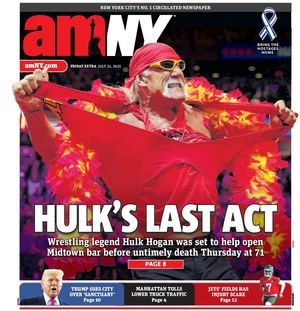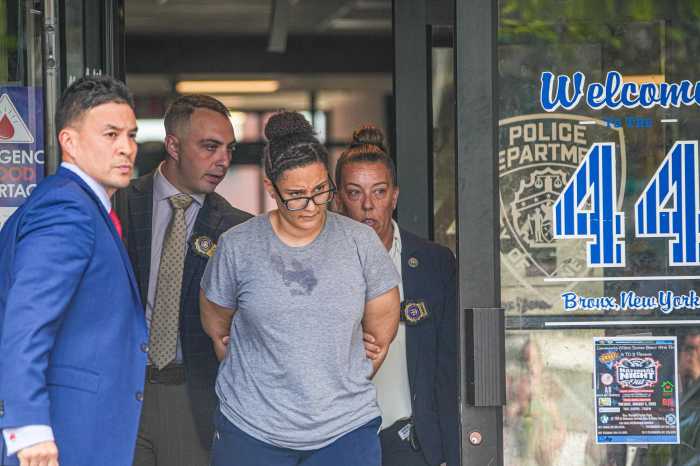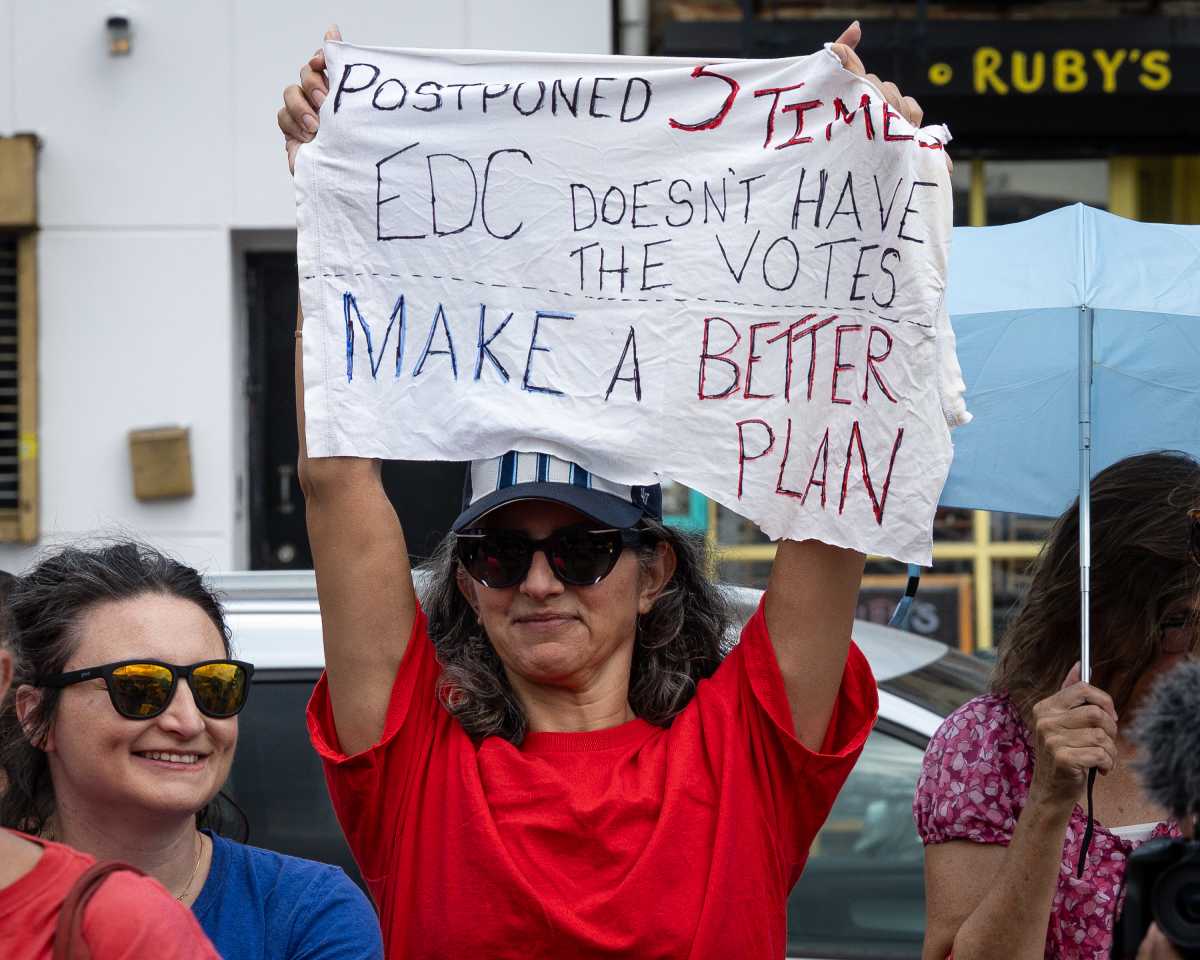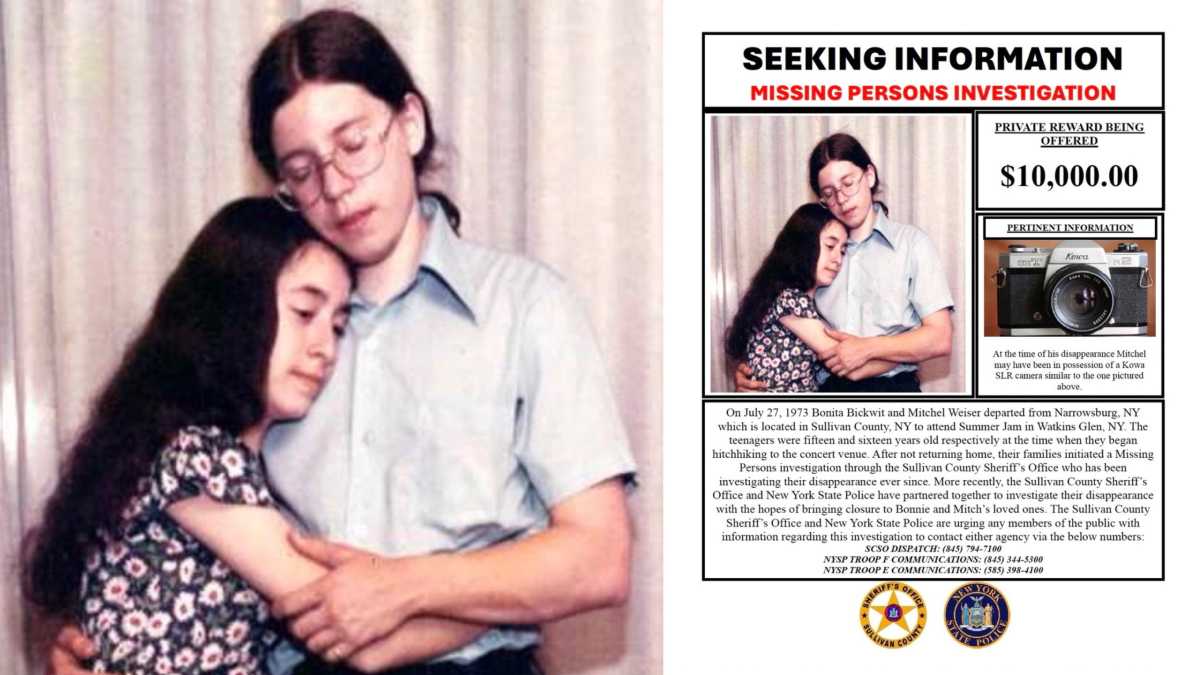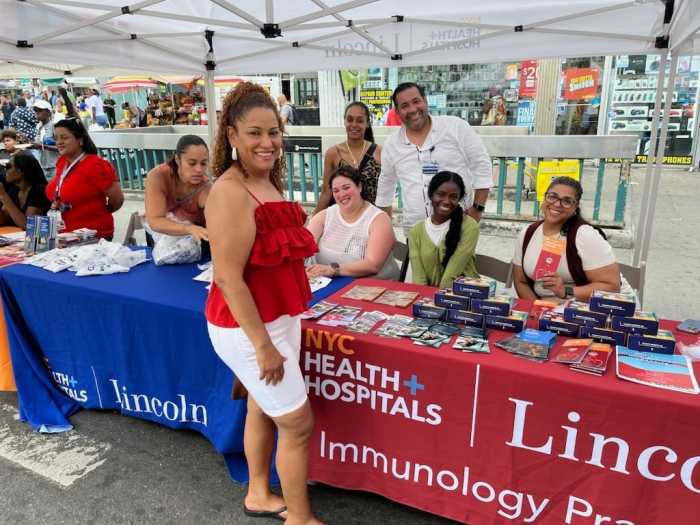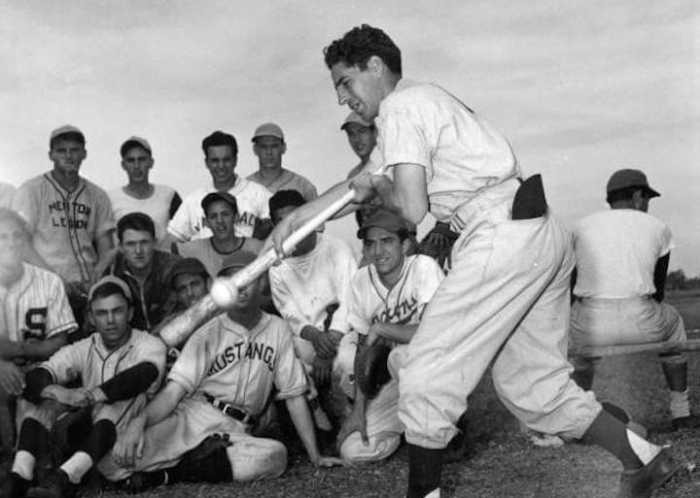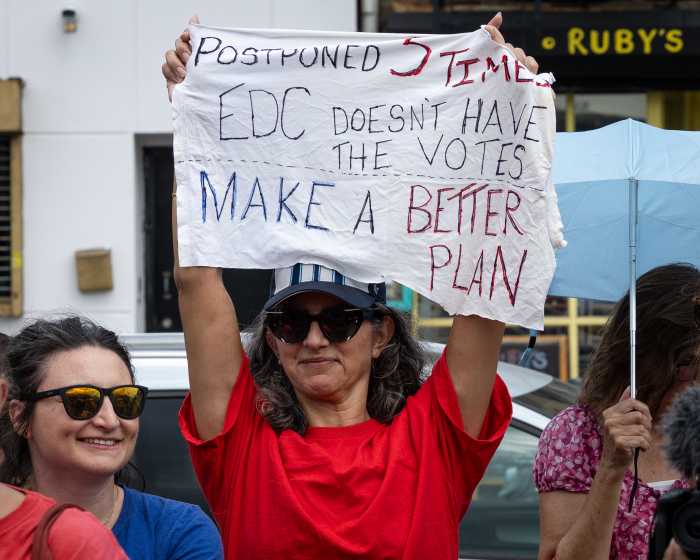Viola Kanevsky and her daughter, Orliana Morag, will celebrate their joint birthday on Jan. 21 in the most meaningful fashion possible in 2017: By joining the thousands taking part in the Women’s March on Washington.
What better way to celebrate thought Kanevsky, now 48, than to rent a bus for $3,500 and bring 53 family members and friends — a varied NYC group representing just about every race, religion and orientation — to the D.C. march for equality?
“It’s an important thing to do,” Kanevsky said. “This is a way for the girls and women to support women’s rights and to make sure the new administration understands that women’s voices are loud and that we are important,” she said.
The mission statement for the Washington march, which will occur the day after the inauguration of President-elect Donald Trump, stipulates concern over rhetoric that demonizes women and minorities and says participants will “join in diversity to show our presence in numbers too great to ignore. … We support the advocacy and resistance movements that reflect our multiple and intersecting identities. We call on all defenders of human rights to join us.”
As of Jan. 18, 209,000 people marked that they were going to D.C. on the Women’s March on Washington Facebook page and another 255,000 people indicated they were interested in attending.
Activists and New Yorkers Harry Belafonte and Gloria Steinem are honorary co-chairs and dozens of organizations — including Planned Parenthood, the NAACP and the black newspapers publishers association — have signed on.
The D.C. march and a satellite event in NYC are drawing New Yorkers — who voted 6-to-1 for Hillary Clinton of every conceivable background, with concerns ranging from abortion and immigrant rights to the environment and education.
The NYC March aims to “connect victims of discrimination, civil injustice, sexual harassment, or unfair treatment in an environment that encourages them to share their stories, receive support and know that they are not alone.”
But is the purpose of the protest to safeguard and advance women’s reproductive rights? Is it to protest Trump’s stated intention to dismantle the Affordable Care Act, to deport immigrants in the country without legal permission and register Muslims coming to the United States?
The ambiguity is intentional, said the lead organizer for the NYC march, Katherine Siemionko.
“I’m a conservative who wanted to be a nun, but I support human rights for all,” she said.
Siemionko, who voted for Clinton, said she is expecting 100,000 people to gather at the United Nations’ Dag Hammarskjold Plaza at 10:45 a.m. on Jan. 21.
More than 52,000 people have said they’re attending the event on its Facebook page. Another 50,000 have expressed interest in it.
Siemionko expects emphatic participation from local colleges and from groups representing the elderly and people with disabilities, as well as a showing from those who are concerned about abortion and LGBTQ rights. The march, she said, is a big, moving tent “for people to see they are not alone, there is hope, and they have power.”
And, regardless of the reasons others may have for attending, she said the march, “is not anti-Trump. It’s pro-equality. We have marchers who voted for Trump who want to support equality.”
“I’m very pro-choice,” said Tiffany Delgado, 18, a senior at the High School of Enterprise, Business & Technology who lives in East New York. Delgado will be marching locally for both reproductive choice and immigrant rights, among other issues.
“I’m very worried,” about the incoming administration, said Delgado, who is of Ecuadorean descent. “My family has their papers, but I have friends whose situation is very different. It makes me think: ‘What if one day I go to school and stop seeing all these people?’”
Kanevsky, who was born in the Soviet Union, identifies as a libertarian but supports universal health care and is offended by the notion that a government could outlaw abortion or redline any necessary medical procedure.
Nancy Lewis, 75, a social worker who retired from a career helping refugees, marched with Martin Luther King Jr. in 1963. She has paid her $80 for a bus ticket to march again in D.C. on Jan. 21.
“I don’t know what I hope to accomplish: I know what I need emotionally,” she said. “My mother’s mother died in 1903 from an illegal abortion,” when Lewis’ own mother was only four years old.
It is crucial to Lewis, who lives in Gramercy Park, that Roe v. Wade, the 1973 decision by the Supreme Court banning many abortion restrictions, not be overturned.
